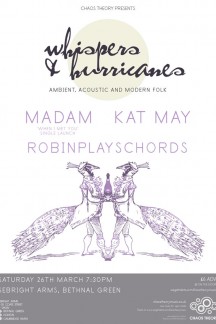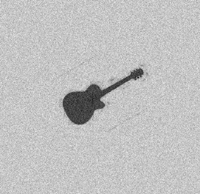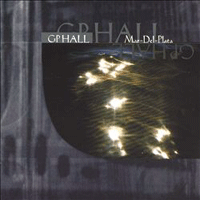More in the ongoing string of unamplified outdoor folk gigs in London parks and gardens, courtesy of Nest Collective’s Campfire Club.
* * * * * * * *
There are two simultaneous concerts on 3rd August, the first of which features “African-Canadian roots phenom” Kaia Kater and experimental folk guitarist John McGrath.
“Kaia Kater couldn’t have come on the scene at a better time. As a new generation takes the reins, American roots music is needed more than ever to remind us of the troubled pathways of our own history. Born of African-Caribbean descent in Québec, Kaia Kater grew up between two worlds: one her family’s deep ties to Canadian folk music in her Toronto home; the other the years she spent learning and studying Appalachian music in West Virginia. Her acclaimed debut album ‘Sorrow Bound’ (May 2015) touched on this divide, but her sophomore album ‘Nine Pin’ (May 2016) delved even further, and casting an unflinching eye at the realities faced by people of colour in North America every day. Her songs on Nine Pin are fueled by her rich low tenor vocals, jazz-influenced instrumentation, and beautifully understated banjo. They earned her a Canadian Folk Music Award in 2016, and they’ve got as much in common with Kendrick Lamar right now as they do with Pete Seeger.
“As a concept album, ‘Nine Pin’ weaves between hard-hitting songs that touch on modern issues like the Black Lives Matter movement (Rising Down, Paradise Fell) and more personal narratives speaking to life and love in the digital age (Saint Elizabeth). And while these larger stories are deftly crafted, this is really an album of moments. Kater’s a cappella voice speaking to the loneliness of a city in Harlem’s Little Blackbird while solo dance steps echo in the background, the muted hesitancy of Caleb Hamilton’s trumpet breaking the trance of Little Pink, the smoke of electric guitar that cuts through Saint Elizabeth, the wave-like ebb and flow of piano behind the plaintive love poem Viper’s Nest… All of these moments point to an artist wise beyond her years.
“John McGrath is an Irish guitarist, composer and author based in London. His music explores the boundaries of the ancient and modern as traditional elements meet improvisation and experimental tendencies. Rich harmonics, intricate finger-picking, static drones and glitches combine to glorious effect.”
* * * * * * * *
The second of the two 3rd August concerts features some neo-traditionalist groupings in the form of Cath & Phil Tyler and Marisa Jack & Davy.
“Cath & Phil Tyler play Anglo-American folk music using guitar, banjo, voice and fiddle. Cath was a member of the band Cordelia’s Dad in the 1990s when she lived in Massachusetts, USA. Phil (from Newcastle-upon-Tyne) has played in various folk, rock and ceilidh bands for many years. Coming together musically through a shared love of traditional narrative song, full voiced sacred harp singing and sparse mountain banjo, they have performed on stages as diverse as the Royal Opera House in London and a dank tower in the old city walls of Newcastle. Taking a more minimal approach to their material than some, they have been described as “one of the most compelling musical partnerships on the scene”, their music being “a highly concentrated and intimate musical experience that penetrates to the very rawest essence of folk tradition.”
“Bedford-based folk trio Marisa Jack & Davy formed in 2015 in order to play at the DIY shows and house concerts they were organising. A floor spot for Stick in the Wheel’s folk night on The Golden Hinde encouraged them to further explore British folk music and they were soon seduced by the music of Shirley Collins, The Young Tradition and Nic Jones. Their unconventional interpretation of the tradition is shaped by the harmonic blend of their three unique voices, acoustic guitar styles and their music backgrounds. Marisa Straccia is an illustrator and plaintive finger picking guitarist, Davy Willis a singer and artist from Tonbridge via L.A. and Jack Sharp is best known as the singer for psych rock band Wolf People. They also run a nomadic Bedford acoustic folk night called Mill Race Folk in various locations including an 18th century watermill, a museum, a community boat and a 15th century timber-framed market hall.”
* * * * * * * *
The 9th August concert features acousti-pop star Get Cape. Wear Cape. Fly. and rising folk-pop sensation Felix MB.
“A veteran at thirty-two, Sam Duckworth has been releasing music under the moniker Get Cape. Wear Cape. Fly. for 12 years. His catalogue includes collaborations ranging from Baba Maal, to Shy Fx, Kate Nash to Jehst. It includes four top 40 singles, tow top 40 albums, a German Club Number 1 and a gold-certified plaque for the seminal ‘Chronicles Of A Bohemian Teenager’.
Having spent three recent years working under his own name, Duckworth returned to Get Cape. Wear Cape. Fly. work in January 2018 with a new album, ‘Young Adult’, which includes the Shy Fx collaboration “always.” Mastered by T Power, this is Duckworth back as a folk artist, but still keeping parts of the electronic experimentation of his “solo” work. Sam debuted a new band at his recent Village Underground show, hearalded by the Independent as a “triumphant return.”
“Growing up in Derbyshire amongst actors and musicians in his parents’ touring theatre company, Felix M-B began gigging in Derby, Nottingham and then across the UK; playing shows with the likes of Lorkin O’Reilly, Alasdair Roberts, Lucy Ward, Josh Wheatley, Daudi Matsiko, Joel Baker, The Slow Show, Monica Heldal, and Georgie. His latest EP ‘The Pipes’ (released on 10th March at a sold-out concert in London) saw Felix co-producing, recording the five-track record with Ben Walker in Brighton in December 2017. It is a particularly raw and intimate record, featuring elements of self-recording and the use of reel-to-reel tape.”
(I’ve had plenty to say about Felix previously…)
* * * * * * * *
The 10th August gig features Oregonian folk duoFellow Pynins and Oxford harmony-folk trio Jack & The Arrows.
“Fellow Pynins is a tender folk duo birthed out of years of traveling, farming, child-rearing, and touring as part of six-piece folk orchestra Patchy Sanders. Their songs tell of stories old, dreams of death, frolicking through pastures of sheep, and entering the chasms of the human experience. Their repertoire consists of original songs and traditional European ballads collected during their travels. Wielding clawhammer banjo, bouzouki, mandolin and guitar, Ian Van Ornum and Dani Aubert pour their hearts into the sounds of their whimsically-woven folk tales. These two will lift you up with their ridiculous stories and then transcend you into their emotive songs.
https://vimeo.com/210281565
Jack & The Arrows are a London-and-Oxford based trio with dashes of folk, Americana and blues and strong close-harmonies. Jack Durtnall, Joe Hasell and Edmund Jones met through a capella singing and the band crystallised around their shared musical passions and longstanding friendships. ‘The Oxford Student’ dubbed them “an enthralling blend of impressive vocal harmonies complimented with rich instrumentation”…”
* * * * * * * *
Full dates:
- Campfire Club: Kaia Kater + John McGrath – Spitalfields City Farm, Buxton Street, Shoreditch, London, E1 5AR, England, Friday 3rd August 2018, 7.00pm – information here and here
- Campfire Club: Cath & Phil Tyler + Marisa Jack & Davy – (secret location t.b.c.), London, Friday 3rd August 2018, 7.00pm – information here and here
- Campfire Club: Get Cape Wear Cape Fly (solo unplugged) + Felix M-B – The Calthorpe Project, 258-274 Gray’s Inn Road, St Pancras, London, WC1X 8LH, England, Thursday 9th August 2018, 7.00pm – information here and here
- Campfire Club: Fellow Pynins + Jack & The Arrows – Oasis Nature Garden, Larkhall Lane, Stockwell, London, SW4 6RJ, England, Friday 10th August 2018, 7.00pm – information here and here
More August Campfire Club concerts shortly….





































